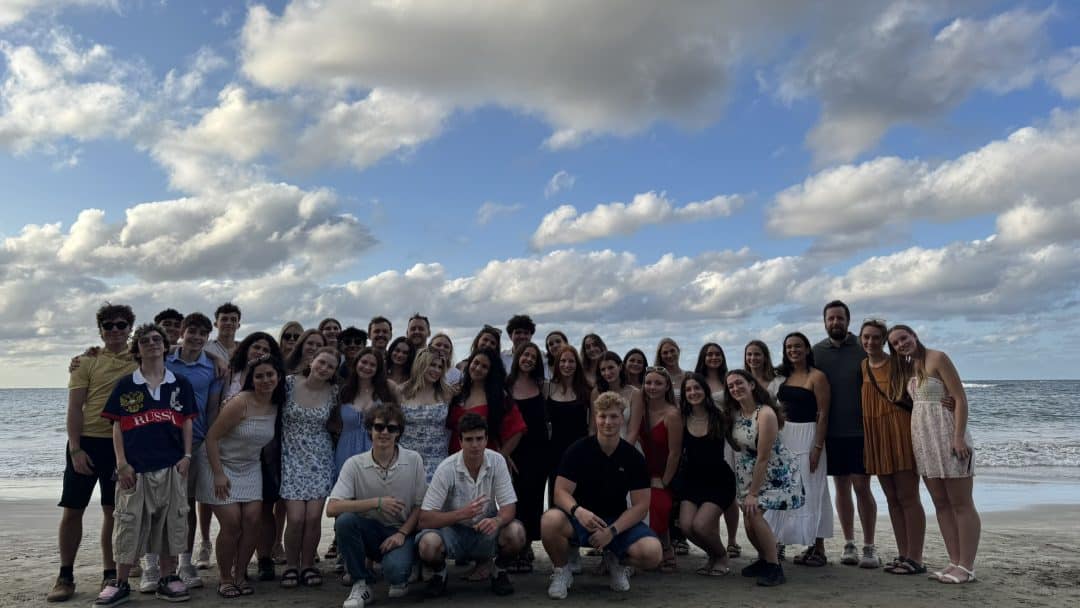
“It is one of the most beautiful compensations of life, that no person can sincerely try to help another without helping himself.” Waldo Emerson
Sometimes, we believe we understand gratitude. We nod when people tell us to “count our blessings.” But true gratitude—one that shakes you to your core—often comes from experience, from stepping outside your comfortable world and seeing life through a completely different lens.
More importantly, it is through giving—through helping others—that we gain the most out of life. Giving is not just about providing for those in need; it is about enriching our own souls, broadening our perspectives, and realizing what truly matters. The act of service does not deplete us—it fills us. And that’s exactly what my daughter, Emma, discovered when she embarked on a service trip to the Dominican Republic with the organization LiveDifferent.
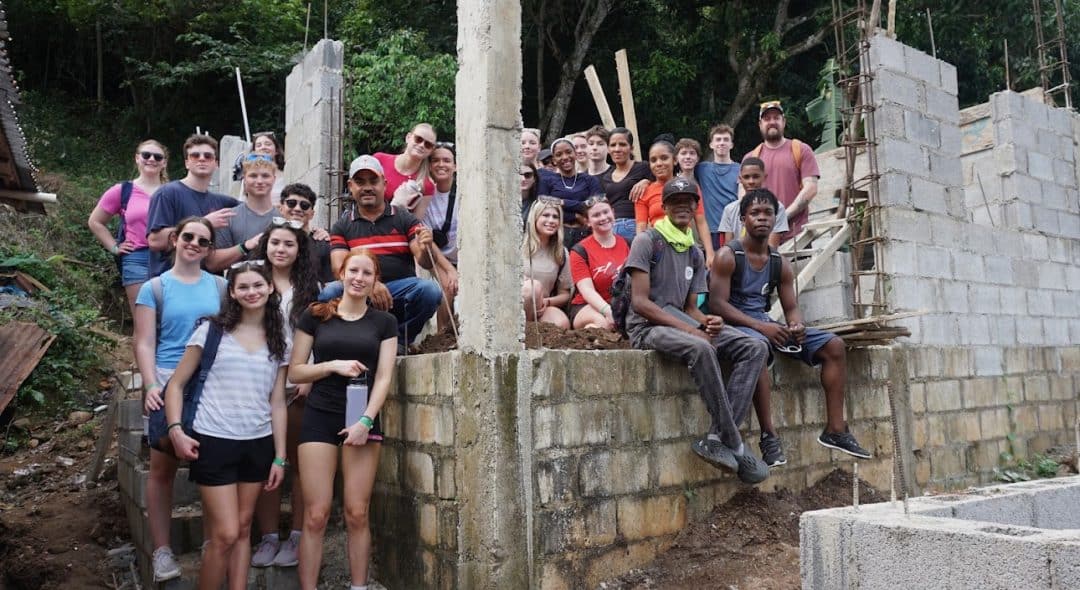 Emma didn’t go for a vacation. She went to work—hard work. She and a group of dedicated individuals spent days building homes for families in need. She had to raise funds for her trip, pouring effort into making it possible. And when she got there, she quickly realized that no amount of mental preparation could match the impact of seeing, firsthand, how people live with so little—yet smile with so much joy.
Emma didn’t go for a vacation. She went to work—hard work. She and a group of dedicated individuals spent days building homes for families in need. She had to raise funds for her trip, pouring effort into making it possible. And when she got there, she quickly realized that no amount of mental preparation could match the impact of seeing, firsthand, how people live with so little—yet smile with so much joy.
Lessons in Gratitude
 One of the first things Emma noticed was how much she missed the comforts of home. “I miss Canada so much,” were her exact words. “In Canada, we take for granted the simple things: clean, drinkable water, flushing toilets, grocery stores stocked with endless choices, electricity, the ability to recycle. In contrast, families in the community we served lacked basic necessities. Some homes were nothing more than four walls and a roof. A single room often housed an entire family. Hygiene was scarce. There were no paved roads, no structured waste management, which caused them to burn the garbage to get rid of it. And yet, despite these hardships, the people I met radiated happiness,” Emma shared.
One of the first things Emma noticed was how much she missed the comforts of home. “I miss Canada so much,” were her exact words. “In Canada, we take for granted the simple things: clean, drinkable water, flushing toilets, grocery stores stocked with endless choices, electricity, the ability to recycle. In contrast, families in the community we served lacked basic necessities. Some homes were nothing more than four walls and a roof. A single room often housed an entire family. Hygiene was scarce. There were no paved roads, no structured waste management, which caused them to burn the garbage to get rid of it. And yet, despite these hardships, the people I met radiated happiness,” Emma shared.
How often do we, in our privileged lives, forget to be grateful? As Emma reflected, “We stress over things that, in the grand scheme of life, are trivial. Our Amazon package is late. Our car isn’t the latest model. We didn’t get into the study program we wanted. But what if we saw things differently? What if we recognized that the very things we complain about are luxuries and privileges that many people around the world will never experience?”
The Strength of Community
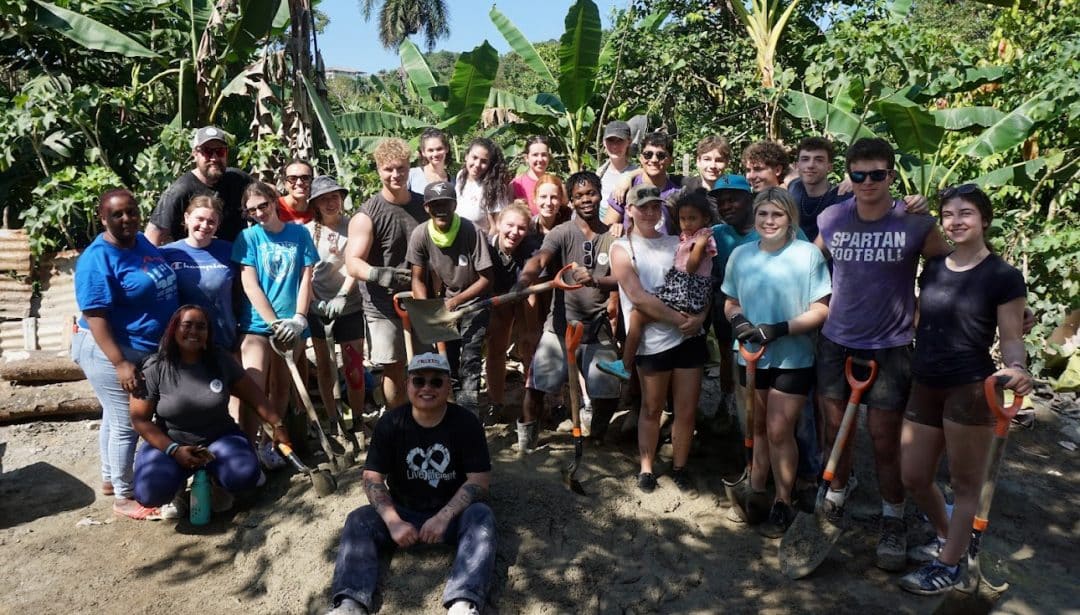 Emma also witnessed the power of community in ways she had never seen before, given the fact, that we, hardly even know our neighbours. “In this neighbourhood, people looked out for one another. They treated each other like extended family. They supported, protected, and comforted one another in ways that are rare at home,” Emma vividly recounted her experience. When Emma and her team visited homes, they were welcomed with open arms. Mothers would hand them their babies to hold, trusting them without hesitation. People who had almost nothing were eager to share what little they did have.
Emma also witnessed the power of community in ways she had never seen before, given the fact, that we, hardly even know our neighbours. “In this neighbourhood, people looked out for one another. They treated each other like extended family. They supported, protected, and comforted one another in ways that are rare at home,” Emma vividly recounted her experience. When Emma and her team visited homes, they were welcomed with open arms. Mothers would hand them their babies to hold, trusting them without hesitation. People who had almost nothing were eager to share what little they did have.
When she asked some of the young girls, “If you could live anywhere in the world, where would you go?” she expected to hear answers like the U.S., Europe, or Canada. Instead, they all said, “Here. My home.” This was
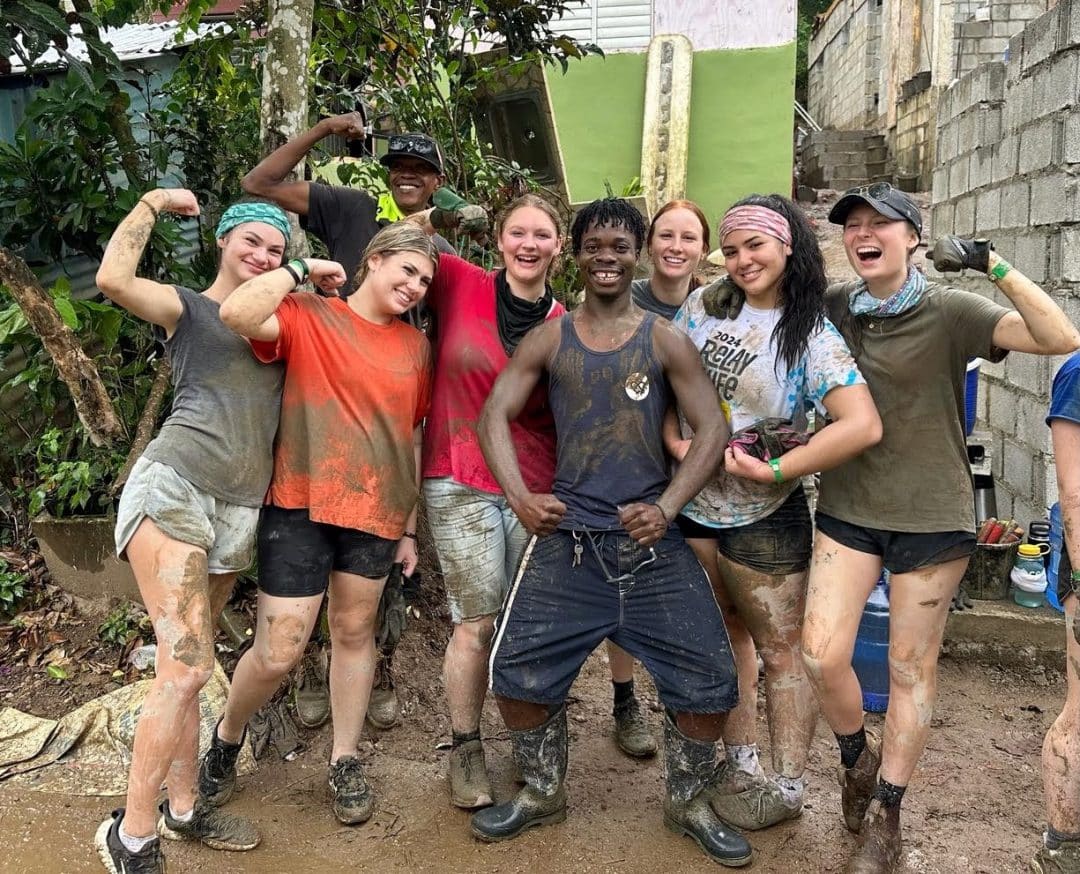 a revelation for Emma. In our Western world, we are conditioned to believe that happiness and success are tied to material wealth—big houses, prestigious careers, and financial security. But in this community, success was measured differently. It was about togetherness, about having people who love and support you, about waking up each day to the sun, the ocean, and a sense of belonging.
a revelation for Emma. In our Western world, we are conditioned to believe that happiness and success are tied to material wealth—big houses, prestigious careers, and financial security. But in this community, success was measured differently. It was about togetherness, about having people who love and support you, about waking up each day to the sun, the ocean, and a sense of belonging.
One of the moments that stood out to Emma was when she asked a local, “What is your dream job?” Expecting answers like doctor, engineer, or entrepreneur—professions often tied to status and ambition in North America—she was surprised by the simple response: “Something stable.” It was a powerful realization. While many of us chase prestige, titles, and higher salaries, for those in this community, the dream was simply security—a job that could provide consistent food, shelter, and peace of mind. It was a reminder that what we often take for granted, others see as their greatest aspiration.
The Joy of Giving
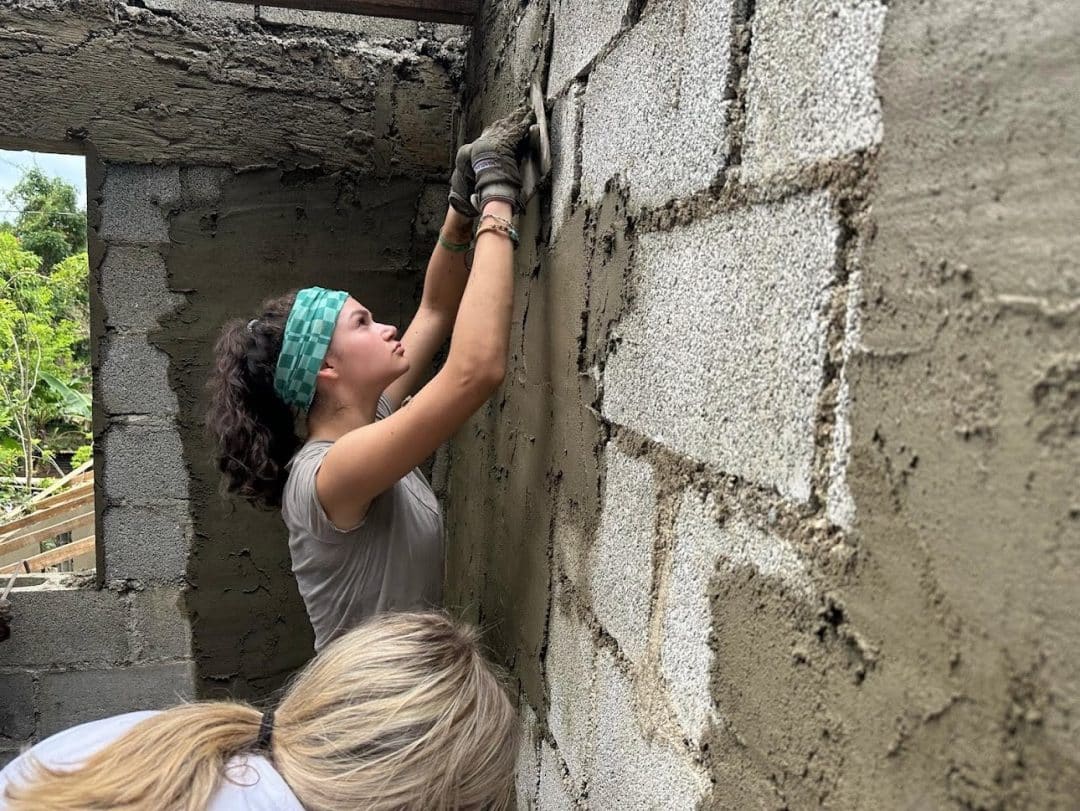
Building homes was no easy task. Emma and her group worked long, exhausting days, mixing concrete, levelling floors, hammering, tiling—every stage of construction. By the end, she had built more than just homes; she had built strength, resilience, and a new perspective on life. She even gained muscle in her arms from the work—a physical reminder of the effort she poured into this mission.
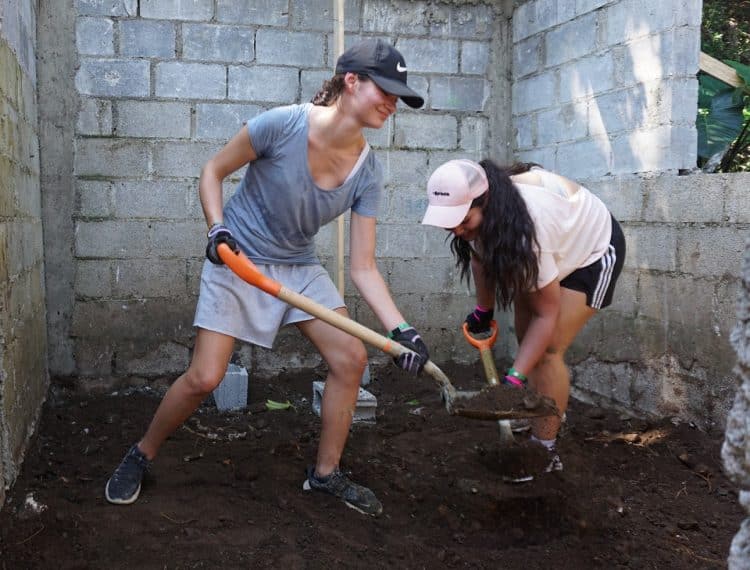
But the most rewarding moment came when they handed over the keys to the families. The homes were painted, stocked with groceries, and ready to be lived in. Emma watched as a father walked in, saw the food on the table, and broke down in tears. “That moment,” she said, “made everything worth it.”
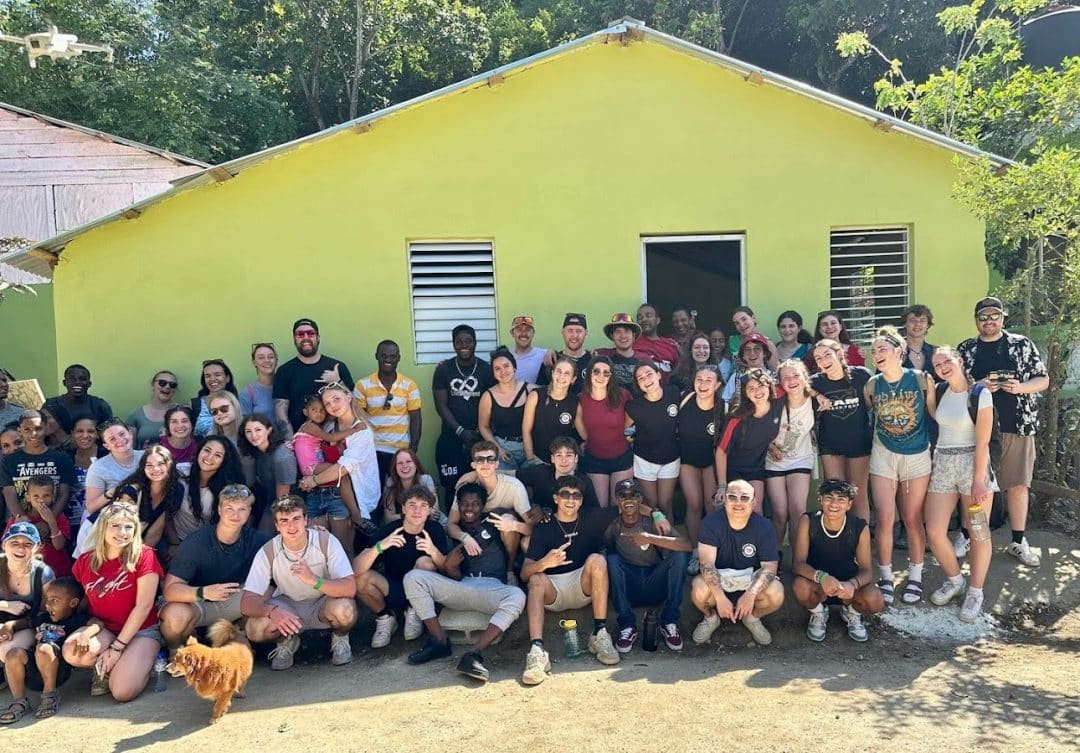
A Call to See the World Differently
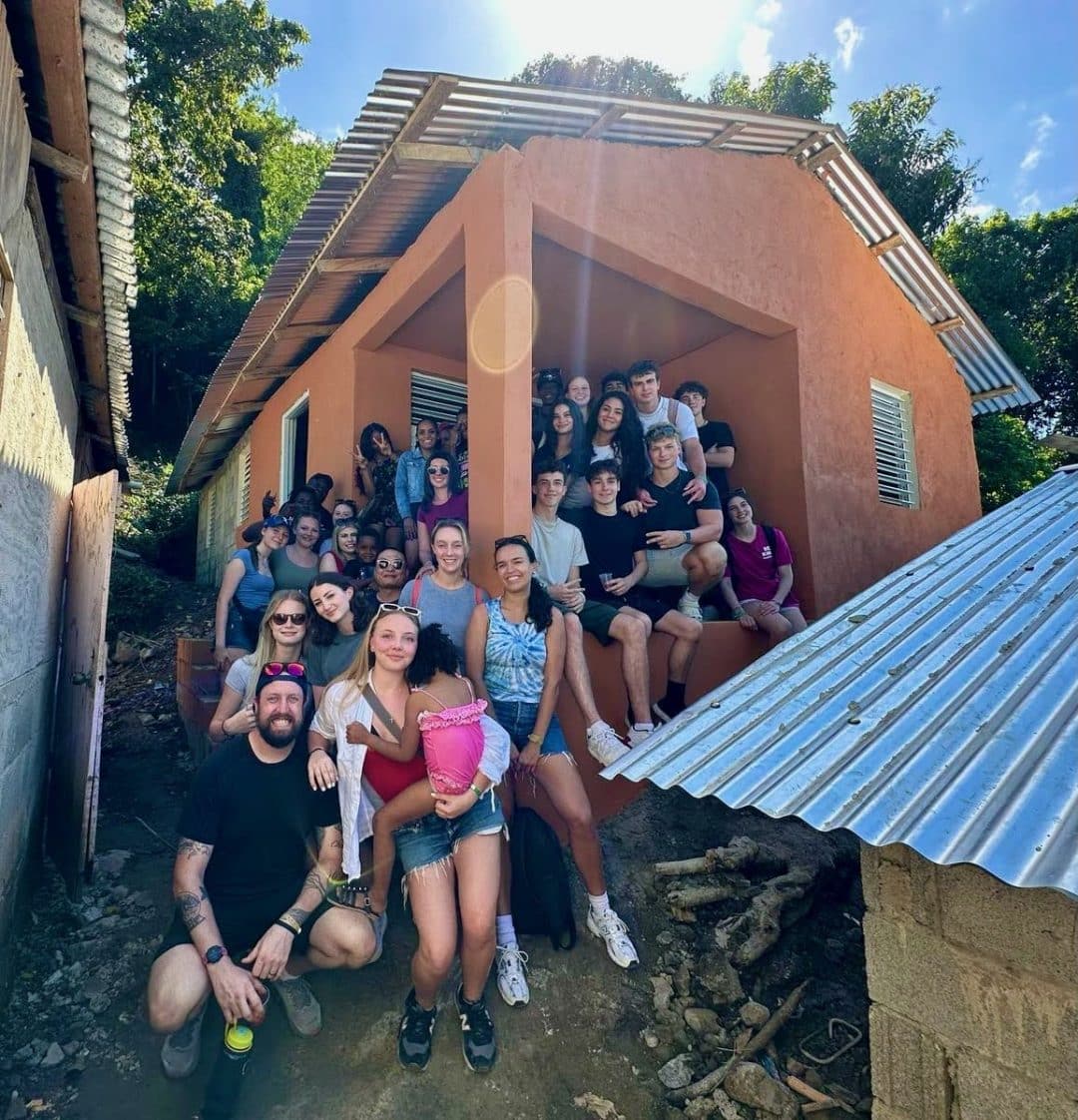 Emma’s journey is a reminder that we all need to shift our perspective. We are privileged beyond measure, yet so many of us live as though we are lacking. We get caught up in chasing things that don’t truly matter—status, possessions, fleeting comforts—while missing out on the wealth that exists in human connection, gratitude, and service.
Emma’s journey is a reminder that we all need to shift our perspective. We are privileged beyond measure, yet so many of us live as though we are lacking. We get caught up in chasing things that don’t truly matter—status, possessions, fleeting comforts—while missing out on the wealth that exists in human connection, gratitude, and service.
“In Canada, there are people who think of themselves poor. But the reality is this: If you have clean water, electricity, and a safe home, you are already wealthier than most of the world. Only a small percentage of people live in developed countries. The rest face struggles we can hardly comprehend. And yet, in many of these places, people exude a joy that seems almost foreign to us,” Emma told me.
When I asked Emma what message she had for people reading this blog, she said, “The next time you feel frustrated over something small—your phone battery dying, a bad hair day, a test score—remember that somewhere, a child is sleeping on a dirt floor, a family is hoping for their next meal, and yet, they are still smiling.”
Emma is forever changed by this experience, and she is already looking for her next humanitarian opportunity to serve. She understands now that real wealth isn’t about what you have; it’s about what you give. And maybe, just maybe, we can all learn from that. Let’s stop complaining. Let’s start appreciating. And more importantly, let’s start giving back.
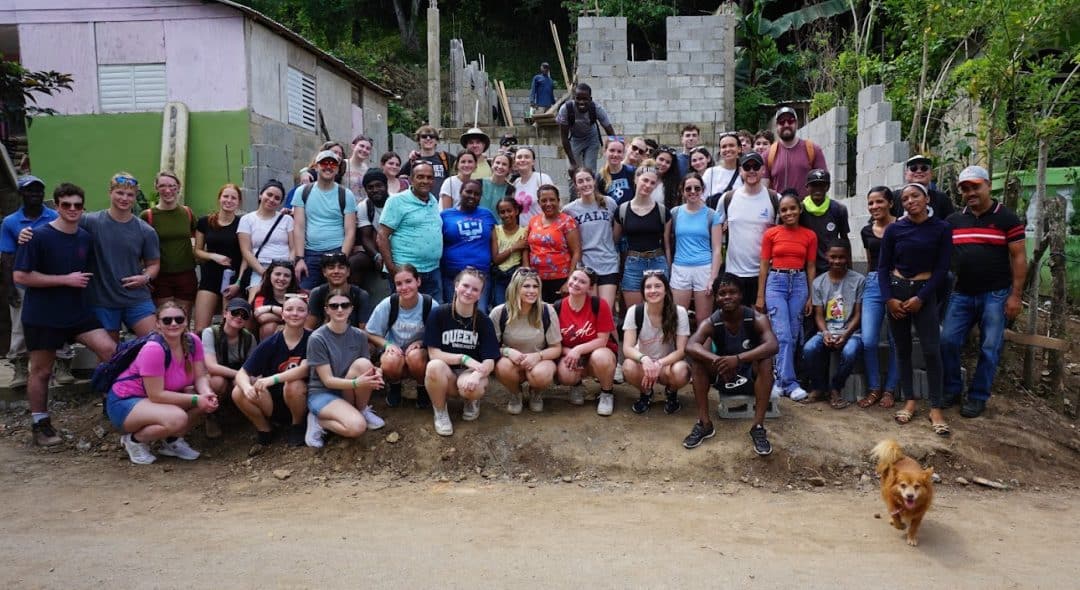 In Emma’s words, “A heartfelt thank you to Muskoka Woods, CEO Leadership Program and LiveDifferent organization for making this masterful experience possible. Your mission to inspire and empower young people through humanitarian service is truly life-changing, and I will carry these lessons with me forever. And last but not least to the Sosúa community, thank you for opening your homes and hearts to us.”
In Emma’s words, “A heartfelt thank you to Muskoka Woods, CEO Leadership Program and LiveDifferent organization for making this masterful experience possible. Your mission to inspire and empower young people through humanitarian service is truly life-changing, and I will carry these lessons with me forever. And last but not least to the Sosúa community, thank you for opening your homes and hearts to us.”
True wealth is not measured by what we own but by the depth of our gratitude, the strength of our connections, and the impact we have on others. Emma set out to give, but in the end, she gained something far greater—a new way of seeing the world. The people she met, though lacking in material wealth, were rich in ways that truly matter: in love, in joy, and community. Perhaps the greatest lesson of all is that in serving others, we find ways to truly enrich and help ourselves.
With gratitude, WALEUSKA

Waleuska – Even as she grows as a kind, loving, generous and grateful individual, Emma is her mother’s daughter. Thank you for sharing this wonderful story, and to Emma for her service to those in need.
Thank you so much
Thank you so much for sharing this heart felt story and providing us a glimpse into the impact that we have the honour of supporting in the lives of the volunteers that attend our Builds program. Your story is what we strive to create and provide – thank you for sharing.
If anyone is interested in learning more about Builds through LiveDifferent, please let me know.
Jennifer Quong
Director of International Programs
LiveDifferent
jennifer.quong@livedifferent.com
Thank you so much Emma is ready for the next adventure so please keep her in mind